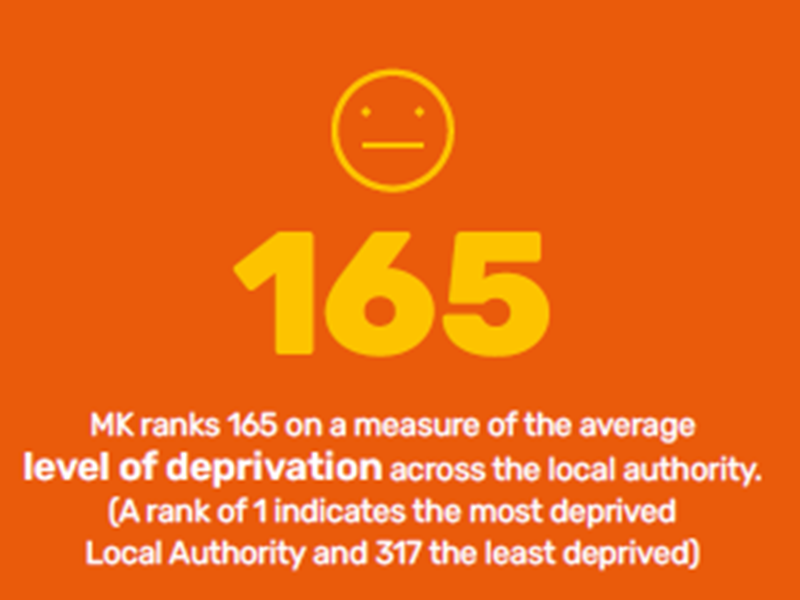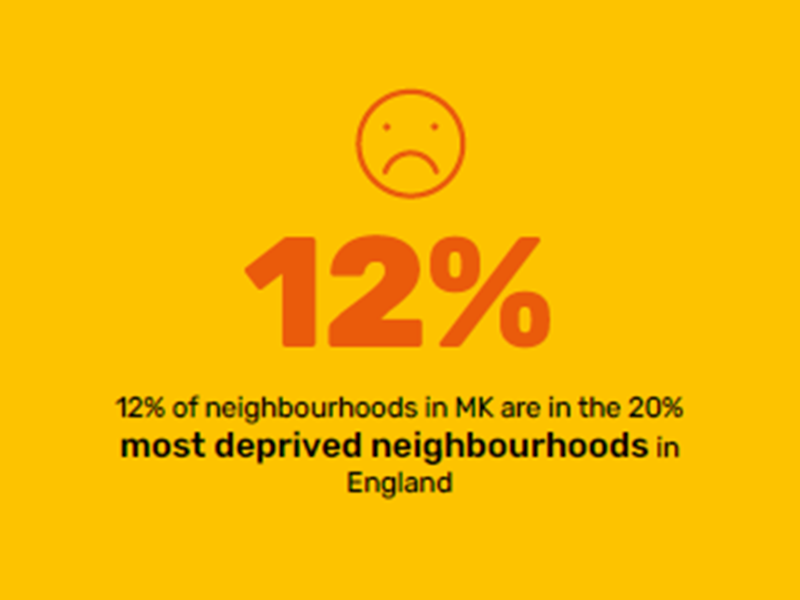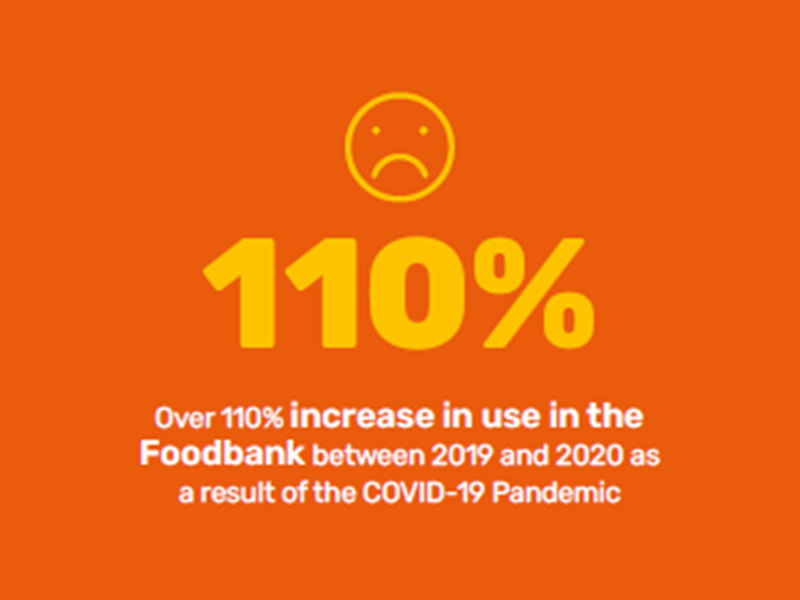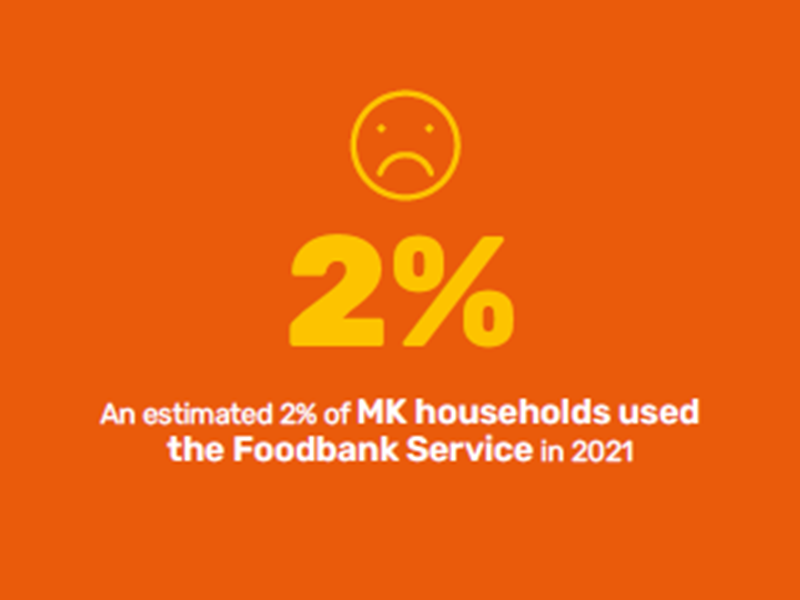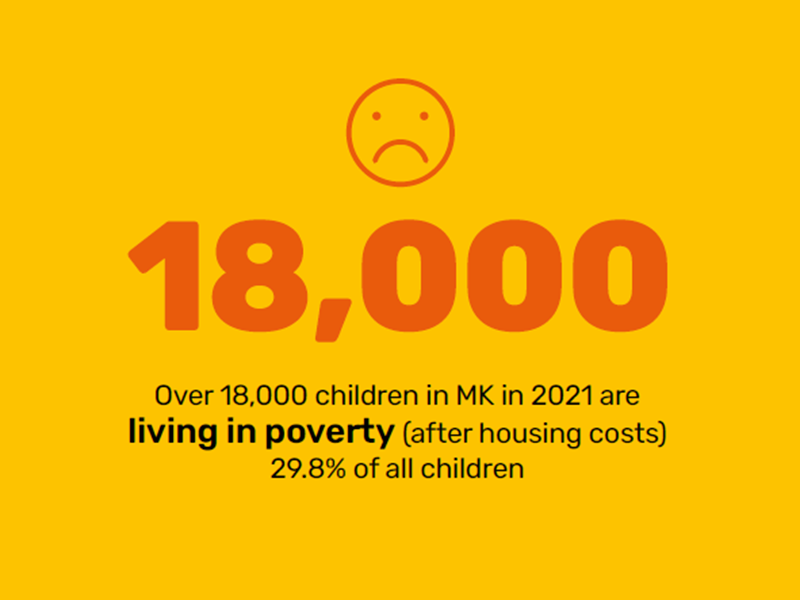SDG NO POVERTY
Theme definition
Poverty is defined as when a person’s resources are well below what is needed to cover their minimum needs. It can mean falling into debt and creates pressures that undermine physical and mental health.
There is no single measure of poverty.
The data used in this section is based on the definition by the End Child Poverty Coalition. The measure it uses is ‘households with incomes, net of housing costs that are below 60% of the median.’ This method takes into account the relative high cost of housing in Milton Keynes.
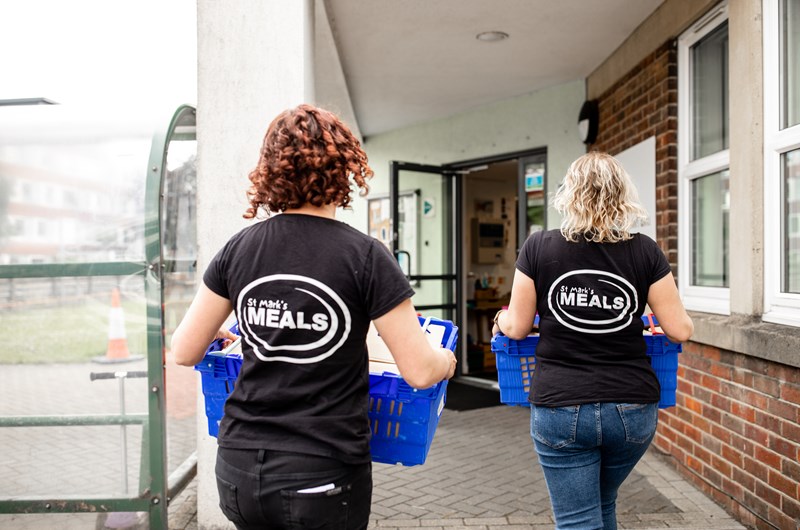
Overview
The high cost of housing, insecure and low paid jobs, low levels of skills, inadequate benefits, high transport and childcare costs, are all contributing to the poverty rates in Milton Keynes.
The sharp increase in the cost of living taking place from 2022 onwards, including fuel and food costs, is already exacerbating the problems being faced by low-income households.
Clustering of those in poverty in Milton Keynes
Milton Keynes ranks 126 out of 372 Local Authorities for the percentage of children living in poverty.
The percentage decreased 0.5% between 2014 and 2021. (A rank of 1 indicates the highest percentage of children in poverty and 317 the lowest percentage).
12% of neighbourhoods in Milton Keynes (known as ‘Lower Layer Super Output Areas’) are in the 20% most deprived neighbourhoods in England based on the government measures of deprivation. [1]
Food insecurity
Food insecurity is defined as ‘a household-level economic and social condition of limited or uncertain access to adequate food’.[2]
Food insecurity and poor nutritional intake impact on physical and mental health and wellbeing. [3]
There was a 110% increase in use in the Milton Keynes Foodbank between 2019 and 2020, due to the COVID-19 Pandemic. Pre-COVID, there were places in the city where people who were homeless could obtain food, but the majority closed during the COVID-19 Pandemic.
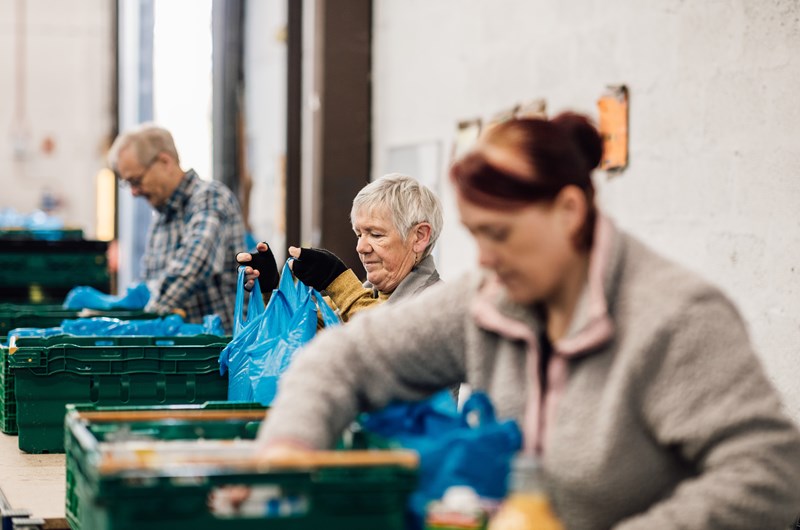
Up until the COVID-19 Pandemic, Milton Keynes Food Bank was providing crisis support of one to six food parcels a year for 90% of recipients.
By 2021, 25% of recipients needed longer term support.
A significant proportion of users are single men, including pensioners on limited incomes, those not working or in low-waged jobs, long-term sick, or with a financial crisis and no savings to draw on.
Debt
2022 marks the 10th anniversary of MK Money Lifeline.
The charity advises and advocates for clients with debt problems and negotiates on their behalf with their creditors.
10 years ago, most people using MK Money Lifeline services were supported to develop plans to pay off their debts.
In 2022 the majority of clients seek to gain a debt relief order, as they have no likelihood of paying their creditors.
MK Money Lifeline reports that the situation is worsening as a result of low wages, low benefits, an high costs including fuel and housing, which are exacerbated by high inflation rates.
The majority of MK Money Lifeline clients are of working age, but are not able to work full time, and about one third have children. The stress and anxiety of their debt situation creates and exacerbates mental health problems.
Child Poverty
Over 18,000 children in Milton Keynes in 2021 were living in poverty – 29.8% of all children, based on data that takes into account housing costs.
The UK average is 27%. This measure counts the number of households with incomes, net of housing costs, which are below 60% of the median.
The numbers are almost double some government statistics which do not take account of housing costs. (Centre for Research in Social Policy at Loughborough University for the End Child Poverty Coalition.)
The percentage of children living in poverty was down by 0.5%.in Milton Keynes and the UK as a whole in 2020/21.
This is likely to be a temporary improvement related to the additional support provided during the COVID-19 Pandemic by the £20 uplift to Universal Credit, which has since ceased.
Poverty by racial group
Those from Ethnically Diverse communities, who were disproportionately impacted through the Pandemic by COVID-related job losses, are now significantly more likely to be trapped in unemployment than their white counterparts. [4]
Vital Thinking
In 2020 MK Community Foundation held a Vital Thinking event around the issue of Child Poverty, convening a number of organisations that were involved in food distribution.
The outcome was the setting up of the Child Poverty Partnership.
The group look at how the various organisations can work effectively to ensure the maximum amount of coverage for their services.
Their website signposts people to the different help available and they encourage collaboration.
The overriding aim for the partnership is:
“Challenging the causes, alleviating the effects and working for the eradication of child poverty in Milton Keynes”
